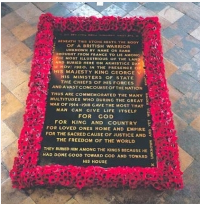I think it has become very apparent that as a global
community have become more and more connected. The internet, cell phones, and
other recent developments in technology has made this all easier. During my
time in London, after I realized how to make the calls properly, I was able to
call my parents a few times. Over my time here at CSC, I have met some awesome
people who are international students. I may not have talked to many of them in
a while, I still have access, in to at least 30 of them on Facebook (definitely
more than that, but that is all I can find for now). That is every continent
with the exception of Antarctica. This allows me to be connected to the world
around me and afar, and I have used it. For instance I talked to a friend in
Pakistan to get their perspective on the killing of Osama Bin Laden, people
from Ukraine, on their perspective on the situation in Crimea, a friend from
Libya who was there as the conflict started about three and a half years ago, a
friend from Egypt who was here during the Arab Spring and back home during
their second revolution, etc… In all of these senses and others social
connectedness is important. As of recent, especially with Ukraine, the
Ukrainian people tried to raise public outcry by making Youtube videos, and
other internet media to raise international support and outcry over what was
happening with the Ukrainian government even before Russia got involved. Things
like this could help pubic work towards charities such as the American Red
Cross (also may involve local charities), these could help fund the resistance
or humanitarian as well as other efforts or public using political pressure to
get governments involved. Also when a person is in a country recovering from a
major uprising, we do not know who could take the lead in the uprising, or a
similar social media post that could rally for support in a stable country can
also happen in a lesser stable country. Now, of course someone on either side
could say something online or do something in their country that makes a
difference. That is part since we are so interconnected nationally as well as
internationally.
With
all of that said, we need to be smart in how we do it. Not everyone wants
thoughts of outsiders. At the end of the day when you are not in a country in
peril, it is a lot easier to throw around advice then to do, well, anything.
Along with that, we are talking about electric media and heck, even physical
media can be infiltrated by governmental personal, and during these times they
may want to hurt people on certain sides. During some of my conversations with
people I was afraid that we were talking about this on Facebook. This is a
website that is well known worldwide. When I was talking to my friend from
Libya, the internet was shut down in his country. I knew nothing about what
happened to him. One day one of his friends posted on his name from Egypt that
he was fine. After six months he finally posted something, at that point I knew
I could contact him, but I was afraid for to contact him. Along with that, too
many outside viewpoints could cause strife in what they are trying to do.
Probably the only thing worse than having two sides that will not agree in a
government, is having two sides who will not agree in a developing government. Activists
and reporters have been arrested. People like those in Egypt have put people in
prison for speaking against their government.
Now, I know what you are thinking, that I am taking internet
conversations too far, and that there are few people who may contact each other
that would be useful in a rebellion or a development of a government. Yet,
think about some of the players in the American Revolution (including those
from the Boston Tea Party or Paul Revere, who was a metal worker. We could also
consider those in the Civil Rights Movement, Reverend Dr. Martin Luther King
Jr. started his following as a minister. At the end of the day, when you are
talking to someone on the internet, you do not know who they are going to be,
and neither do they. With that said, tread softly, and pass on some good ideas,
who know, you may help write a country’s constitution without ever setting foot
there.


